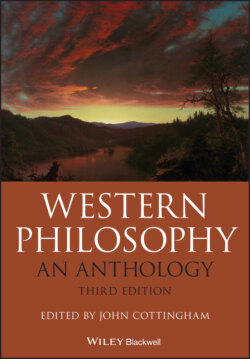Читать книгу Western Philosophy - Группа авторов - Страница 32
Give It Time
ОглавлениеLet me end with a brief word about technique. When I was a student, life sometimes seemed to be one long ‘essay crisis’, and completing a paper or assignment always seemed to be a rush. In fact, working under time pressure may actually have an upside, for sometimes wrestling with a difficult philosophical problem day after day only makes it seem more intractable. But one thing worth remembering is that you are best placed to judge the clarity of what you have written if you put it aside and come back to it later. It’s easy enough to skim over a finished essay and think it’s all fine; but when one re-reads it after a night’s sleep, or better still a couple of days later, one will often see flaws and obscurities (‘What on earth did I mean by that?’). A second read of a paper may help you see it through the eyes of the person who will eventually assess it, and the process of stepping back from what you wrote yesterday will almost certainly lead to improvements. This is a point that probably applies to all successful writing, but it is particularly applicable to philosophy, much of which involves cultivating a sense of critical distance, and engaging in a dialectical process of objections and replies (even when, as in the process of essay writing, the dialogue is between yourself today, and your earlier self who drafted the paper yesterday).
But ultimately one learns by doing. In relating the texts you study to wider questions about the nature of reality and our human place within it, you will be following a road that has excited and inspired many before you. It is not always an easy road, but all fine things are hard, as the philosopher Spinoza observed at the end of his own masterpiece, the Ethics, written some fifty years before Berkeley’s Principles. We cannot all be a Spinoza, or a Berkeley. But we can all enter into the struggle to come to terms with the human condition and our relation to the world around us. And the best and most productive way to enter into that struggle is by looking in detail at the great texts that have come down to us, expounding the arguments you find there, and working out your own critical responses. I hope these brief introductory remarks have encouraged you to set out on this road, and that as you move forward you will increasingly come to see just how creative and rewarding a process philosophizing can be.
